On July 13, Vice Prime Minister Jorge Tapia of Cuba led a delegation to the Institute of Vegetables and Flowers of the Chinese Academy of Agricultural Sciences (IVF CAAS). They were accompanied by Sun Tan, Vice President of the CAAS, Kou Zhanying, Secretary of the Party Committee of IVF, and Zhang Shingling, Deputy Director of IVF.
The delegation visited the display greenhouse in the southern area of the institute, where Deputy Director Zhang Shengping introduced the basic information of the institute to the foreign guests and proposed three aspects of cooperation: the promotion of variety and technology, the establishment of a joint laboratory, and the joint cultivation of graduate students.
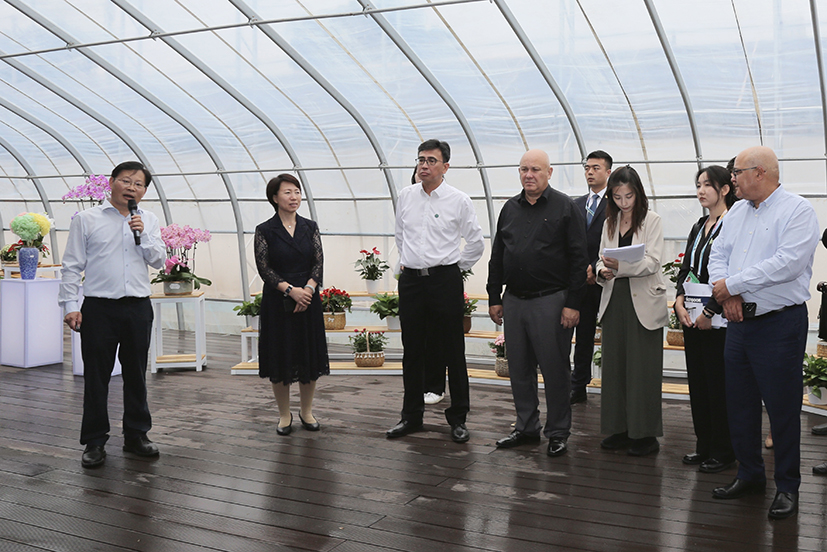
Accompanied by Secretary Kou Zhanying, the foreign guests visited the flower variety and resource display area. Researcher Yang Shuhua gave a detailed introduction of the cultivation of flower varieties and the development of derived products to the guests.
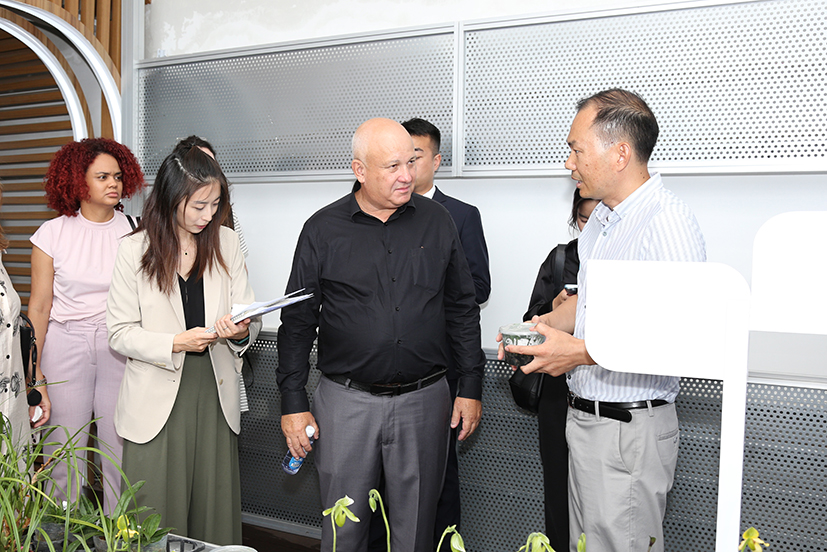
In the leafy vegetable variety and resource display area, Researcher Li Zhansheng reported on the characteristics of various varieties and the current status of the germplasm resources utilization.
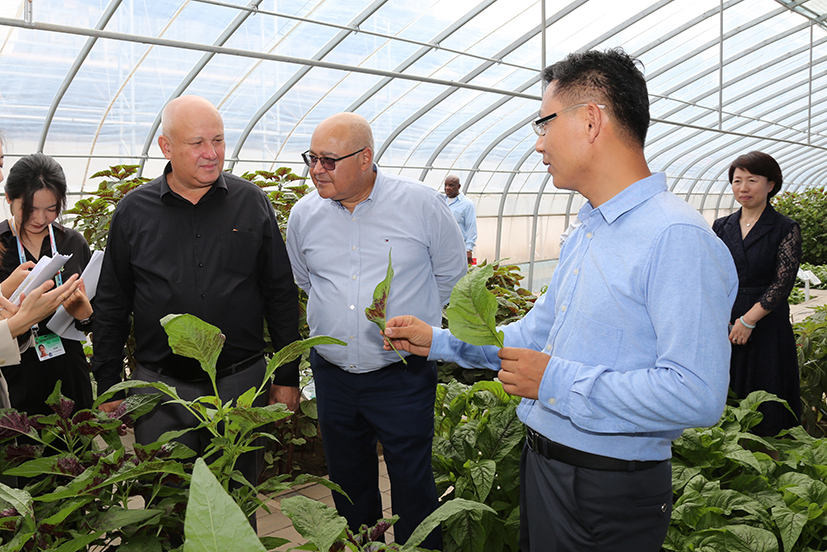
Under the introduction of Researcher Wang Haiping, the delegation visited the National Vegetable Germplasm Resource Mid-term Storage Facility.
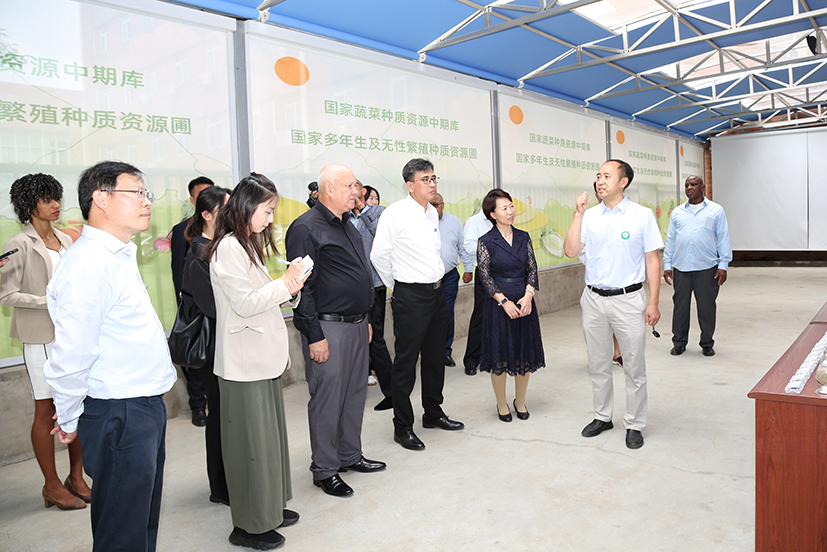
During the visit, Vice Prime Minister Tapia showed great interest in Researcher Xu Jianfei’s report about potato cultivation and discussed potato production technology.
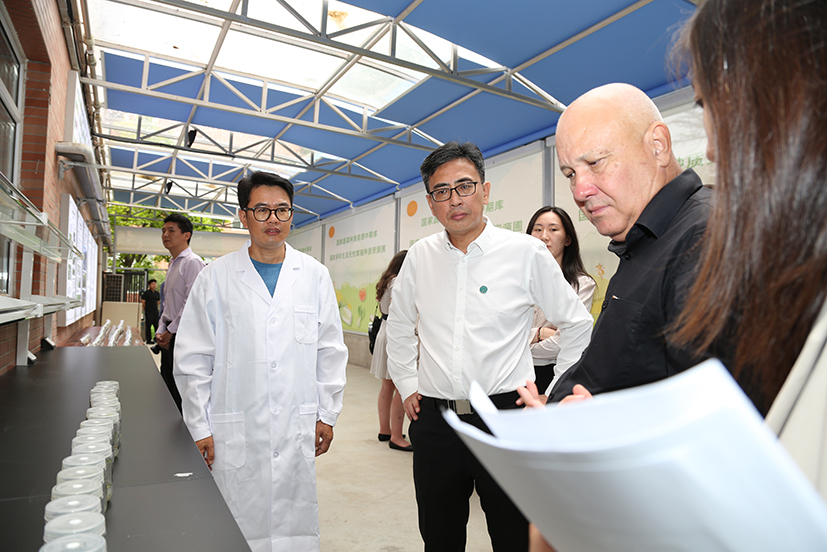
Researcher Wang Xiaowu, Director of the National Key Laboratory of Vegetable Biotechnology, introduced the guests to the biotechnology research room and the intelligent molecular breeding platform.
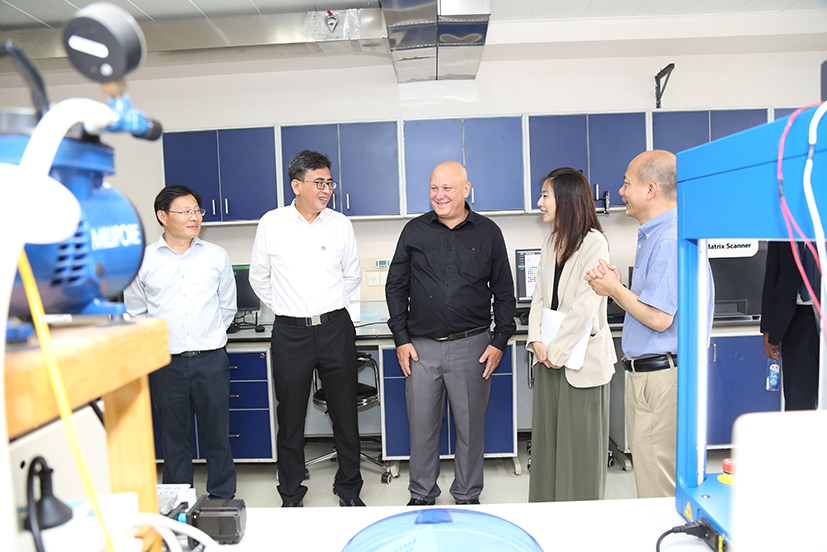
Vice President Sun Tan welcomed the visit of Vice Prime Minister Tapia and his delegation. He was looking forward to exchanges on a larger scale, in a broader field, and at a deeper level, continuously deepening the cooperation under the "Belt and Road" initiative, and jointly promoting new developments in Sino-Cuban agriculture.
Vice Prime Minister Tapia highly praised the strong scientific research capabilities and outstanding achievements of the institute. He expressed his willingness to actively promote the construction of the joint laboratory and hoped that both sides could carry out pragmatic cooperation in the fields of new vegetable and flower varieties and technologies, achieving complementary advantages, resource sharing, and common development. He also warmly invited leaders and experts from the CAAS to visit and exchange in Cuba.